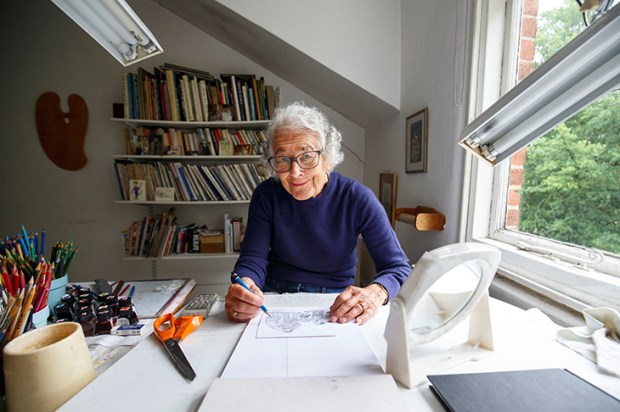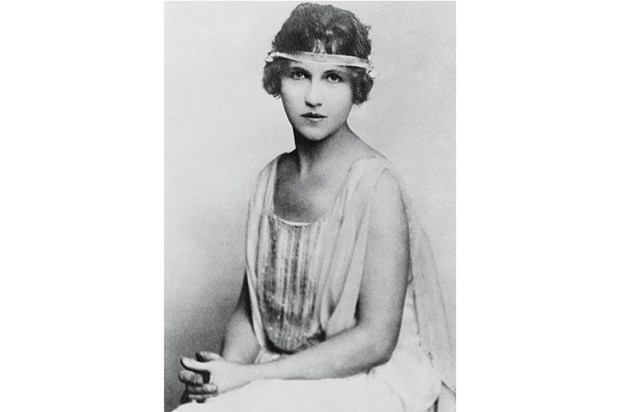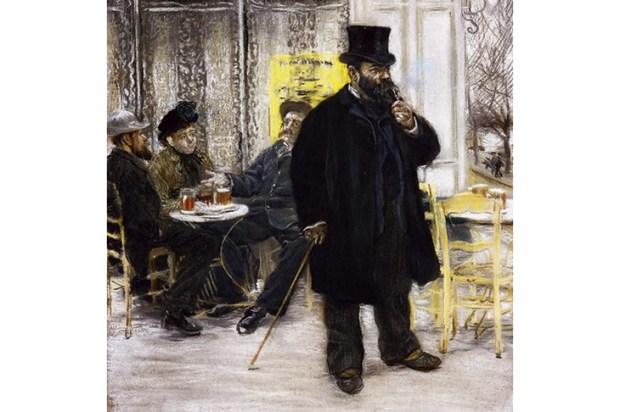The epigraph of Three Women comes from Baudelaire’s ‘Windows’: ‘What one can see out in the sunlight is always less interesting than what goes on behind a windowpane.’ Inspired by Gay Talese’s 1980 reportage on the sexual revolution, Thy Neighbour’s Wife, Lisa Taddeo, a journalist and Pushcart prize-winning short story writer, peered into the windows of three ‘ordinary’ American women to illustrate their ‘erotic lives and longings’. We meet Lina, a suburban housewife straying from her sexless marriage with an old flame; Maggie, a young woman who has brought charges against a high-school teacher with whom she allegedly had an affair as a student; and Sloane, an elegant restaurateur in her early forties, living out her husband’s cuckold fantasies with partners of his choosing.
Taddeo set out to ‘register the heat and sting of female want, so that men and other women might more easily comprehend before they condemn’. We watch as Maggie — whose story gets the most airtime — is ostracised by her community, while the man she has accused of misconduct thrives as state teacher of the year. Lina’s confidantes cluck about her infidelity, but we see her suffering from her husband’s repeated rejection. Sloane faces the consequences of her actions firsthand when she is confronted by the wife of one of the men with whom she has been involved.
The most poignant parts of Three Women concern class more than desire. Taddeo delicately describes the last days of Maggie’s father’s life before he committed suicide, having sunk into depression after losing his blue-collar job. Pre-#MeToo, Maggie’s experience on the witness stand raises ‘the all too familiar question of when and why and by whom women’s stories are believed’.
Despite the access the author was afforded as she embedded herself in the lives of her subjects, however, the blinds remain partially drawn. The eight years dedicated to the project might suggest a sexual Seven Up of sorts, with the evolution of the three women’s wants unfolding in real time. Instead, much is recounted from memory, with the backstories unfurling unevenly: while we are privy to cloying details of Maggie’s teenaged lovesickness, the aftershocks of Lina’s having been drugged and gang-raped at 15 are only cursorily addressed.
Any selection of only three case studies will invariably leave something, and somebody, out. Taddeo has said that her intention was not to show desire across the board, but to share the stories of these three particular women. Nonetheless, an attempt to represent ‘what longing looks like in America’ may have warranted the inclusion of more diversity and breadth of experience. While the three women span class and geography, they are all white, married, relatively young and predominantly heterosexual.
And, ultimately, submissive. Maggie, who lost her virginity to an older man before the alleged affair, longs to be taken care of. Lina knows she is at her lover’s whim — reduced to pulp by desire, to paraphrase Georges Bataille. Sloane is relieved to recognise herself as a submissive after reading Fifty Shades of Grey — an epiphany which, paradoxically, empowers her to initiate group sex for the first time.
Story of O, however, this is not — neither in its depiction of the psychology of submission nor in literary merit. Whereas Pauline Réage’s O, seeking transcendence via sexual surrender, is ‘profoundly active in her own passivity’, as Susan Sontag noted, Sloane remains ambivalent about performing for her husband’s pleasure. Scolded for having swerved off-script, Sloane realises that
she had not quite figured it out, who she was and what she wanted, after all, and that discovery, that there was yet more to discover, didn’t make her feel excited about the balance of her life. It made her feel tired.
Readers, alas, may find themselves similarly wearied, with prose that does little to elicit excitement. Those flipping forward to get to the good bits, in search of reprieve from passages such as ‘She is refined and so are her world, her bedsheets, her brain’, will be disappointed to find the sex scenes no better rendered. Baudelaire’s flâneur-voyeur-artiste concludes ‘Windows’ by contending that whether the story he’s imagined about the woman observed ‘across the ocean of roofs’ is accurate is of no consequence, as long as it ‘has helped me to live, to feel that I am, and what I am’.
Three Women shines a spotlight on the sex lives of its subjects, but falls short of illuminating ‘what we are’ in this vital area of our lives. The most interesting thing about this hotly anticipated debut may well be the attention it is attracting. Having earned the author a seven-figure, three-book deal and topped summer reading lists, one hopes its publication heralds more penetrating explorations of Eros to come. Although undeniably admirable in ambition, its execution leaves something to be desired.
Got something to add? Join the discussion and comment below.
Get 10 issues for just $10
Subscribe to The Spectator Australia today for the next 10 magazine issues, plus full online access, for just $10.
You might disagree with half of it, but you’ll enjoy reading all of it. Try your first month for free, then just $2 a week for the remainder of your first year.














Comments
Don't miss out
Join the conversation with other Spectator Australia readers. Subscribe to leave a comment.
SUBSCRIBEAlready a subscriber? Log in